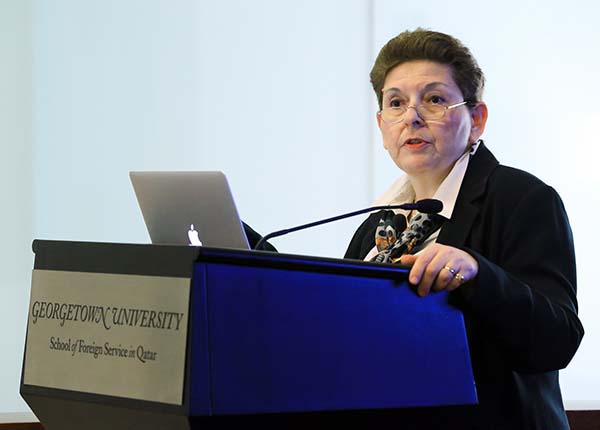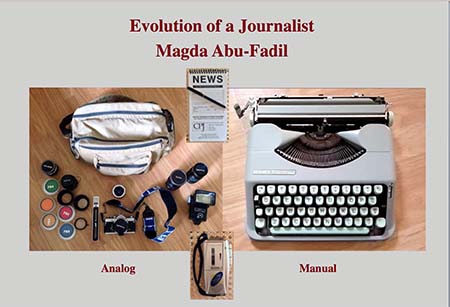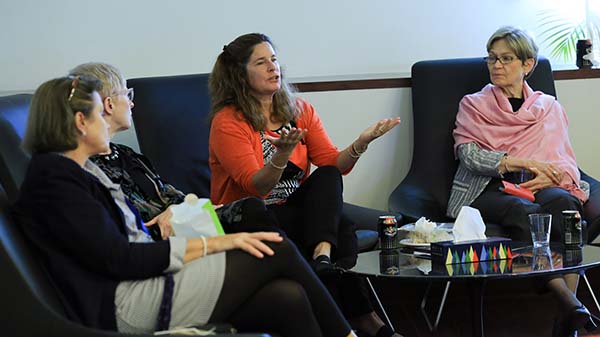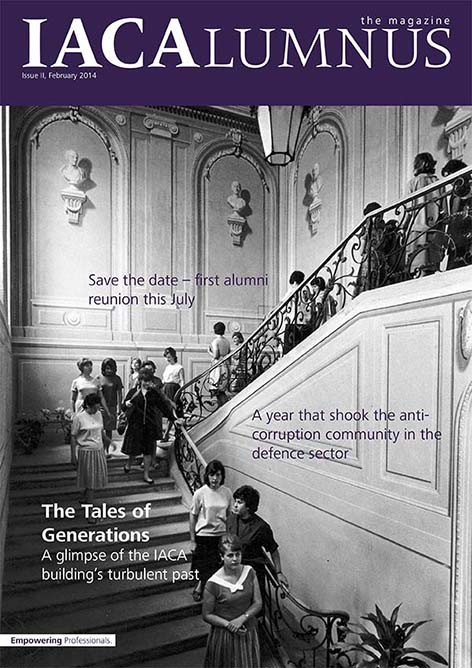Becoming a journalist today requires a modified skill set to the one needed decades ago, but the principles of news gathering, fact checking, story telling and ethics remain the same, Media Unlimited director Magda Abu-Fadil told students in Doha.
She addressed Georgetown University School of Foreign Service students and faculty members in October in Qatar on the evolution of journalism, on becoming a foreign correspondent, on politics, and on media ethics.
Abu-Fadil showed her audience how she had evolved as a reporter whose local and foreign assignments meant excellent preparations for stories through constant learning and knowledge as well as what was then available as tools of the trade.
The tools included notebooks, pens, recorders, batteries, cameras, lenses, filters, flashlights, tripods, and typewriters.
Mobile journalists, or mojos, including herself, using mobile, portable, connected devices have mostly replaced those earlier items, although several remain staples for reporters and photographers, she said.
The informal lunch gathering included students from Northwestern University’s Qatar campus who attend joint media classes at Georgetown.
In another meeting with Georgetown students, Abu-Fadil spoke on media, culture and politics in the Middle East, focusing primarily on ethics (or the lack thereof) in print, broadcast, online and social media.








